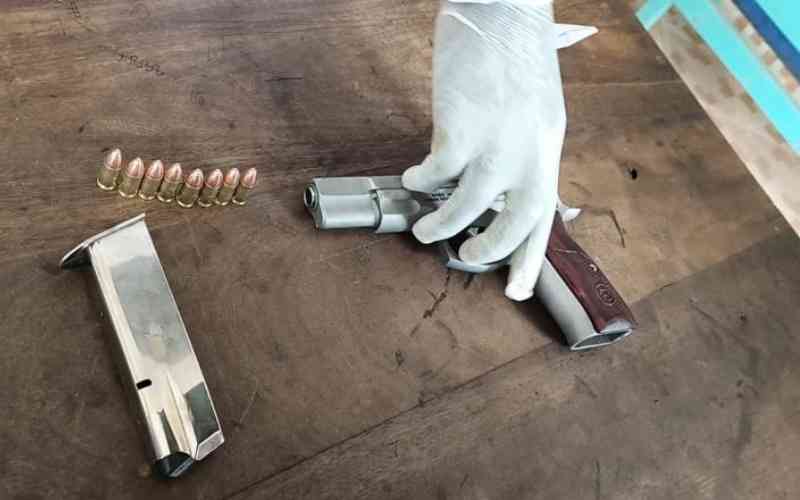
Mutua Mwanzia sentenced for staging wife’s murder as suicide in Mombasa
A man who faked that his wife had committed suicide in their bedroom eight years ago in Mombasa has been sentenced to serve 18 years in prison for killing her.
Mutua Mwanzia was jailed by Justice Anne Onginjo after prosecution witnesses proved that Mary Wanjiku Waweru did not commit suicide by hanging herself in their bedroom on May 13, 2016.
The prosecution witnesses who included their two daughters, a cousin and Wanjiku’s brother gave evidence uncovering Mwanzia’s concealment of the cause of death.
Justice Onginjo said that although there was no eyewitness, there was evidence that the accused planned and executed the brutal killing of his wife before faking she committed suicide by hanging.
The judge noted that during the trial, there was evidence that the deceased’s body was found lying down with the head raised and a wire around the neck.
The court heard how there was administration of a pesticide and use of cable to tie the deceased from a window grill to make it look like she had committed suicide by hanging herself.
“The administration of a pesticide and use of a cable to tie the deceased person from the window grill to make it look like she committed suicide by hanging is evidence of extreme malice aforethought on the part of the accused person,” said Justice Onginjo.
- Rising suicide rates among Kenyan medics
- Fight to decriminalise attempted suicide gains momentum as cases surge
- Emotional powder kegs: When men choose to suffer in silence
Keep Reading
The accused had denied that on May 13, 2016, at Ushindi area Likoni Sub County in Mombasa County, he murdered Wanjiku.
During the trial, the state called 16 witnesses who included her two children and the deceased’s brother Naftali Chege Waweru.
The judge said prime witnesses gave chronological events which used to happen between the two before she was murdered.
The two children told the court how Mwanzia used to quarrel and beat up their mother in their presence.
They said on the fateful day, one of them did not go to school and instead was taken to their aunt’s place.
The other one who went to school was collected by the father who also took her to the aunt. They had left their mother in the house but later in the evening when they went to the house, they were told their mother had died.
A friend Sharon Kangwele, who was the first person to see the body lying in the bedroom with a wire tied around her neck, reported the matter to the neighbours.
The judge said Chege testified that both the accused and the deceased would call him whenever they fought and used to mediate between them and ask them to live harmoniously.
The court heard that in 2015, he went to the couple’s house four times.
Chege told the court that at one time, the deceased was unwell and she went to his house and said she was sick, accusing Mwanzia of not taking her to the hospital.
Chege recalled how his parents were called several times in 2015 to help the two live happily.
“That same year on a different date, Mwanzia beat the deceased and told her to go to the police. At the police station, the deceased said they would solve the problem and went back,” said Chege.
But on the fateful day, Chege said he received a call from Mwanzia that her sister had committed suicide and on arrival, he found the body lying down with a cable tied round the neck from a window grill.
Chege said a postmortem was conducted at Coast General Teaching and Referral Hospital and Kenyatta University Hospital where the body was transferred on suspicion there was foul play at Coast Teaching Referral Hospital. Both hospitals gave conflicting postmortem result reports but were consistent that there was pesticide in the liver.
After evaluating evidence, the judge concluded that Wanjiku was killed by Mwanzia following circumstantial evidence which was brought to court. She said the action of Mwanzia was malice aforethought, saying the prosecution had proved its case beyond reasonable doubt.
 The Standard Group Plc is a multi-media organization with investments in media platforms spanning newspaper print
operations, television, radio broadcasting, digital and online services. The Standard Group is recognized as a
leading multi-media house in Kenya with a key influence in matters of national and international interest.
The Standard Group Plc is a multi-media organization with investments in media platforms spanning newspaper print
operations, television, radio broadcasting, digital and online services. The Standard Group is recognized as a
leading multi-media house in Kenya with a key influence in matters of national and international interest.











